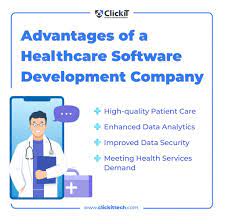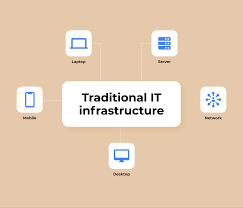Revolutionizing Finance: The Power of Fintech Software
The Rise of Fintech Software in Modern Finance
In recent years, the financial industry has witnessed a significant transformation with the emergence of fintech software. Fintech, short for financial technology, refers to innovative solutions that leverage technology to enhance and automate financial services.
Traditional financial institutions are facing increasing competition from fintech companies that offer more agile and customer-centric services. Fintech software is revolutionizing the way people manage their finances, make payments, invest, and access credit.
Key Features of Fintech Software
Fintech software encompasses a wide range of applications and services, including:
- Mobile Banking Apps: Allow users to manage their accounts, transfer funds, pay bills, and track expenses on-the-go.
- Payment Gateways: Enable secure online transactions for businesses and consumers.
- Robo-Advisors: Use algorithms to provide automated investment advice based on individual financial goals and risk tolerance.
- P2P Lending Platforms: Connect borrowers directly with lenders, bypassing traditional financial institutions.
- Cryptocurrency Exchanges: Facilitate the buying, selling, and trading of digital currencies like Bitcoin and Ethereum.
The Benefits of Fintech Software
The adoption of fintech software offers several advantages for both consumers and businesses:
- Convenience: Users can access financial services anytime, anywhere through digital platforms.
- Cost-Effectiveness: Fintech solutions often have lower fees compared to traditional banking services.
- Financial Inclusion: Fintech software can reach underserved populations who have limited access to traditional banking services.
- Innovation: Continuous technological advancements drive the development of new features and products in the fintech industry.
The Future of Fintech Software
The future of fintech software looks promising as technology continues to evolve rapidly. We can expect further integration of artificial intelligence (AI), blockchain technology, and machine learning in fintech solutions. These advancements will enhance security measures, improve data analysis capabilities, and personalize user experiences even further.
As fintech software becomes more mainstream, it is essential for financial institutions to embrace innovation and adapt to changing consumer preferences. By leveraging fintech solutions effectively, businesses can stay competitive in a rapidly evolving digital landscape.
Understanding Fintech Software: Key Questions and Insights
- What is fintech software?
- How does fintech software differ from traditional financial services?
- What are the key features of fintech software?
- How secure is fintech software in handling financial transactions?
- What are the benefits of using fintech software for personal finance management?
- Can fintech software help businesses streamline their financial operations?
- Are there regulatory considerations for using fintech software?
- What trends are shaping the future of fintech software development?
- How can individuals and businesses choose the right fintech software solution for their needs?
What is fintech software?
Fintech software, short for financial technology software, refers to innovative digital tools and applications that leverage technology to revolutionize the way financial services are delivered and accessed. These solutions encompass a wide range of offerings, including mobile banking apps, payment gateways, robo-advisors, peer-to-peer lending platforms, and cryptocurrency exchanges. Fintech software aims to enhance convenience, accessibility, and efficiency in managing finances, making transactions, investing, and accessing credit. By integrating cutting-edge technologies with traditional financial services, fintech software plays a pivotal role in shaping the future of modern finance.
How does fintech software differ from traditional financial services?
Fintech software differs from traditional financial services in its approach to delivering financial solutions. Unlike traditional institutions, fintech companies leverage technology to provide more accessible, efficient, and personalized services to users. Fintech software often offers streamlined processes, lower fees, and innovative features that cater to the evolving needs of modern consumers. Additionally, fintech solutions prioritize user experience by offering convenient digital platforms that enable users to manage their finances seamlessly from anywhere. This shift towards digitalization and innovation sets fintech software apart from the more traditional and rigid structures of traditional financial services.
What are the key features of fintech software?
Fintech software encompasses a diverse set of key features that revolutionize the way individuals and businesses interact with financial services. These features include mobile banking apps that provide convenient account management and transaction capabilities on smartphones, payment gateways that ensure secure online transactions, robo-advisors offering automated investment advice tailored to individual financial goals, peer-to-peer lending platforms connecting borrowers directly with lenders, and cryptocurrency exchanges facilitating the buying, selling, and trading of digital currencies. These innovative features collectively empower users to access financial services efficiently and securely in today’s digital age.
How secure is fintech software in handling financial transactions?
Ensuring the security of fintech software in handling financial transactions is a top priority for both providers and users. Fintech companies implement robust security measures, such as encryption protocols, multi-factor authentication, and regular security audits, to safeguard sensitive data and prevent unauthorized access. Additionally, regulatory bodies often oversee fintech operations to ensure compliance with industry standards and protect consumers from fraud or data breaches. While no system is entirely immune to risks, the continuous advancements in cybersecurity technologies and practices contribute to enhancing the overall security of fintech software in managing financial transactions.
What are the benefits of using fintech software for personal finance management?
Utilizing fintech software for personal finance management offers a multitude of benefits. These innovative tools provide users with convenient access to their financial information anytime, anywhere, empowering them to track expenses, set budgets, and monitor investments seamlessly. Fintech software often comes with user-friendly interfaces and features that simplify complex financial tasks, helping individuals make informed decisions about their money. Additionally, these solutions typically offer cost-effective alternatives to traditional banking services, allowing users to save on fees and optimize their financial resources efficiently. By leveraging fintech software for personal finance management, individuals can achieve greater control over their financial well-being and enhance their overall financial literacy.
Can fintech software help businesses streamline their financial operations?
Fintech software has proven to be a valuable tool for businesses looking to streamline their financial operations. By leveraging fintech solutions, businesses can automate repetitive tasks, improve efficiency in processes such as invoicing and payment processing, enhance data accuracy, and gain real-time insights into their financial performance. With features like advanced analytics, budgeting tools, and seamless integration with existing systems, fintech software empowers businesses to make informed decisions and optimize their financial workflows for greater productivity and profitability.
Are there regulatory considerations for using fintech software?
When considering the use of fintech software, it is crucial to take into account regulatory considerations that may apply. Due to the nature of financial services and transactions involved, fintech software often falls under various regulatory frameworks established by governmental authorities. Compliance with regulations such as data protection laws, anti-money laundering (AML) regulations, know your customer (KYC) requirements, and financial licensing obligations is essential to ensure the legality and security of using fintech software. Understanding and adhering to these regulatory considerations are vital for both fintech companies and users to maintain trust, transparency, and compliance within the financial industry.
What trends are shaping the future of fintech software development?
The future of fintech software development is being shaped by several key trends that are driving innovation in the industry. One significant trend is the increasing adoption of artificial intelligence (AI) and machine learning algorithms to enhance data analysis, improve decision-making processes, and personalize user experiences. Additionally, blockchain technology is revolutionizing security measures and enabling faster and more secure transactions in fintech applications. The rise of open banking initiatives and API-driven ecosystems is fostering collaboration among financial institutions and fintech companies, leading to the development of integrated and seamless financial services. These trends are paving the way for a more efficient, inclusive, and customer-centric future in fintech software development.
How can individuals and businesses choose the right fintech software solution for their needs?
When selecting the most suitable fintech software solution for their requirements, individuals and businesses should consider several key factors. Firstly, it is essential to assess their specific financial needs and goals to determine which features and functionalities are crucial. Conducting thorough research on different fintech software providers, comparing their offerings, reputation, and customer reviews can help in making an informed decision. Additionally, evaluating the scalability, security measures, integration capabilities with existing systems, and cost-effectiveness of the fintech software solution are vital aspects to consider. Collaborating with industry experts or seeking recommendations from peers can also provide valuable insights into choosing the right fintech software solution that aligns best with their unique financial objectives.








